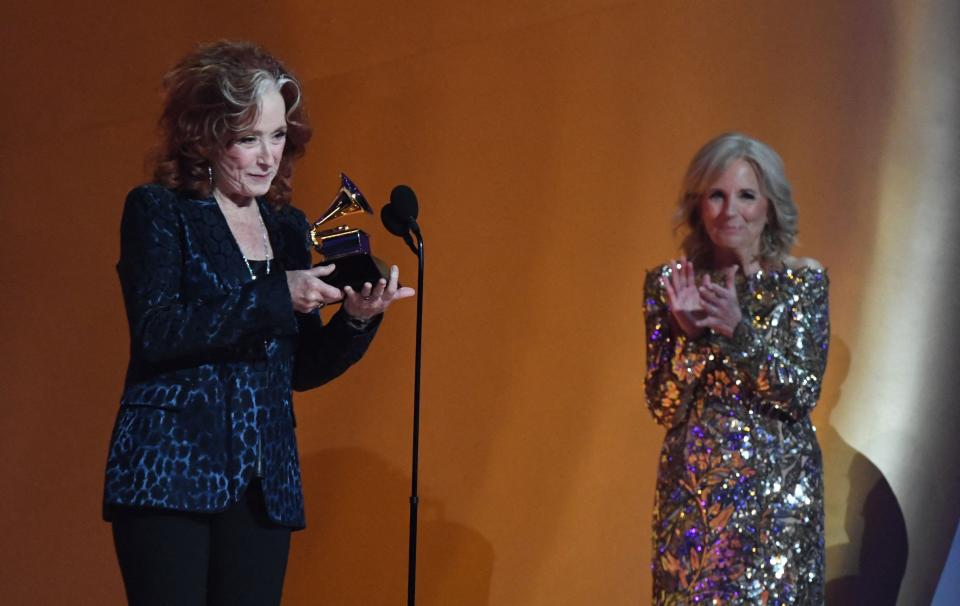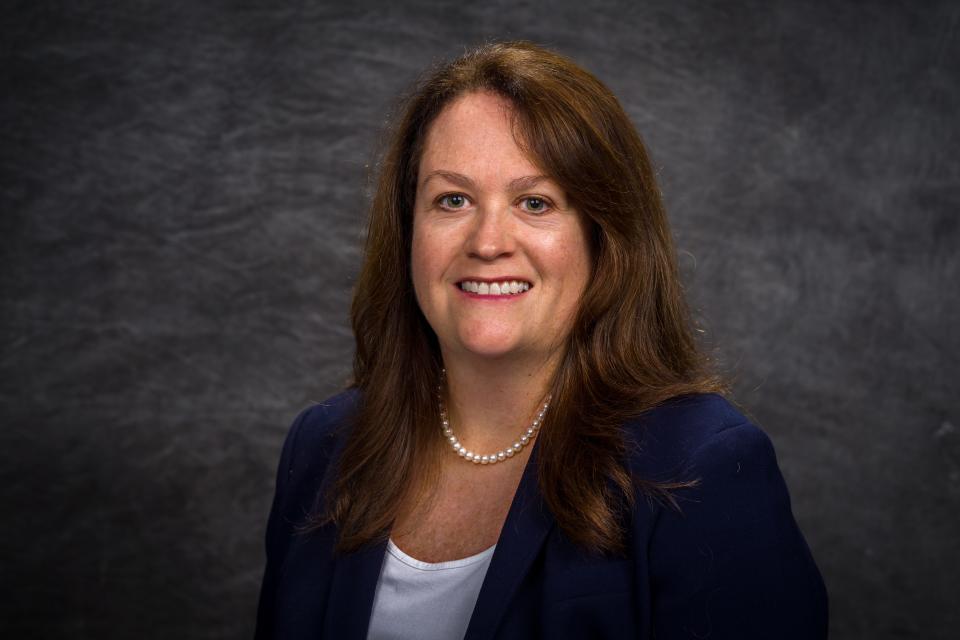Bonnie Raitt's song of the year spotlights organ donation. Too often, we waste that gift.

In the spotlight at the Grammy Awards, Bonnie Raitt accepted her song of the year award for “Just Like That” by turning the spotlight on the modern miracle of organ donation and transplant. Her song was inspired, she said, by “the love and the grace and the generosity of someone (who) donates their beloved's organs to help another person live.”
Such love, grace and generosity has led to more than a million transplants since America’s first transplant surgery in 1954. Yet there have always been more patients waiting for transplants than there are organs available. The gap is shrinking, but not rapidly enough.
While the United States has seen a record number of deceased donor transplants each year for the past decade, more than 100,000 patients are still waiting. Sometimes, the gift of life takes too long to arrive – as it did for poet and advocate Tonya Ingram, who died waiting for a kidney in late December.
Opinions in your inbox: Get exclusive access to our columnists and the best of our columns throughout the week
Donated organs become less viable with each passing hour in transit
Many would be surprised to learn, then, that the number of donated organs that are recovered and matched to patients is actually growing. Unfortunately, transplant programs end up declining many of these organs for a variety of reasons, including medical complexity of the organ, logistical issues and other factors. The transplant professionals who help place donor organs must then race against the clock to find other recipients, while the donor organs become less viable with each passing hour.

Last year, nearly 20% of organs recovered from selfless donors were not transplanted. This includes more than a quarter of recovered kidneys. Most of those organs come from older donors; these can be more medically complex to transplant but remain safe for patients.
The trend of organ non-use has been rising and was well-documented in a comprehensive report last year by the National Academies of Sciences, Engineering and Medicine.
Opinion alerts: Get columns from your favorite columnists + expert analysis on top issues, delivered straight to your device through the USA TODAY app. Don't have the app? Download it for free from your app store.
Every stakeholder in the system, from transplant hospitals to United Network for Sharing (UNOS) leadership, knows that calls for change must be met with action.
How to increase acceptance rates of donor organs
Take transplant programs, for example: On Jan. 31, the biggest gathering of transplant programs to improve organ offer acceptance took place in Orlando, Florida. A third of the country’s transplant hospitals participated in this kickoff to a six-month project sponsored by the U.S. Organ Procurement and Transplantation Network (OPTN). During this time, they shared best practices and committed to addressing ongoing issues and working together to increase acceptance rates of donor organs.
Every child deserves lucky timing: My daughter is healthy today because of a liver transplant system that no longer exists
Please consider becoming a living kidney donor: I had end stage kidney failure at age 32, and a transplant saved my life
United Network for Organ Sharing (UNOS) is the nonprofit that serves as the OPTN. We work with hospitals, organ procurement and transplant professionals, physicians, patients, lawmakers and federal agencies to enact a variety of policies. When it comes specifically to the non-use of donor organs, we’re pursuing specific actions and advocating for the federal government to make these changes in the next OPTN contract:
Expand options for transporting donor organs, reducing risks of organ delay, damage or loss during transit. This includes working with the Department of Transportation to allow organs to travel in the cockpit again instead of as cargo, a post-9/11 change.
Utilize ventilated death data directly from hospitals to conduct near real‐time performance reviews of organ procurement organizations, pinpoint underperformance and implement corrective action.
Make data on organ procurement organizations and hospital performance publicly available so patients can understand how their transplant program compares with others. Publicly available data would include organ recovery rates, non-utilization rates and regional trends, educating patients and giving policymakers and regulators a clearer picture of how programs and hospitals are performing.
A recent study published in the American Journal of Transplantation found that the median waiting time for kidney transplantation is decreasing – by more than a year compared with 2018.
However, we should not evaluate the transplant system by what it has done, but rather by what it needs to do.

Kendall Ciesemier’s recent article on Ingram’s death and her advocacy addresses some of the same concerns shared by the organ donation and transplant system. Like the author, we want an organ for every patient who needs one.
Bonnie Raitt sang so beautifully about a life saved by an organ donor. Thousands of Americans are alive today because of transplants. Thousands join them every year. Nonetheless, we must take decisive action to best serve the thousands more who are still waiting. These and other actions we are pursuing will help create the kind of system that the poet Tonya Ingram deserved.
Dr. Maureen McBride is the interim CEO of United Network for Organ Sharing (UNOS), the mission-driven nonprofit managing the nation’s transplant system. She has been with the organization since 1995, serving in numerous key leadership capacities and has contributed to over 50 research manuscripts and publications.
You can read diverse opinions from our Board of Contributors and other writers on the Opinion front page, on Twitter @usatodayopinion and in our daily Opinion newsletter. To respond to a column, submit a comment to letters@usatoday.com.
This article originally appeared on USA TODAY: Grammys song of the year shines on organ donations. But many go unused

 Yahoo Movies
Yahoo Movies 
